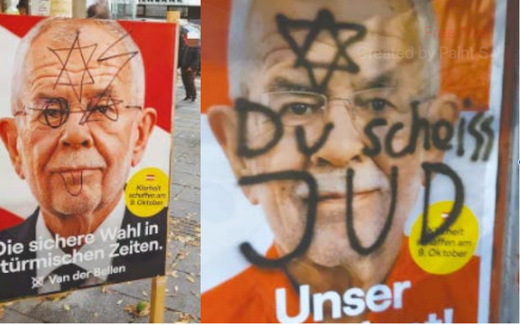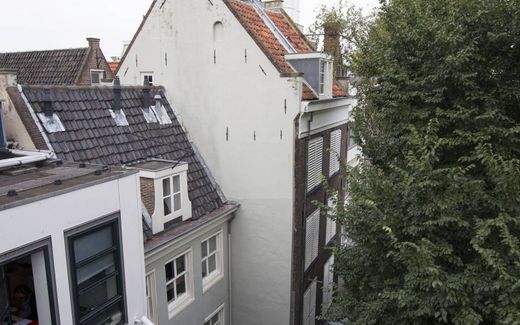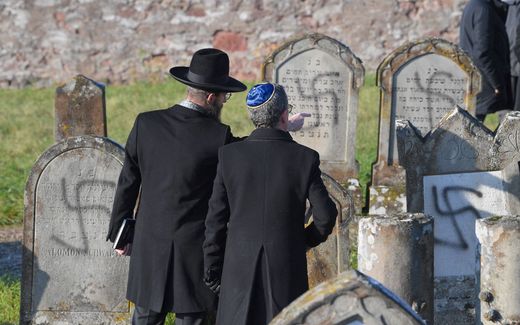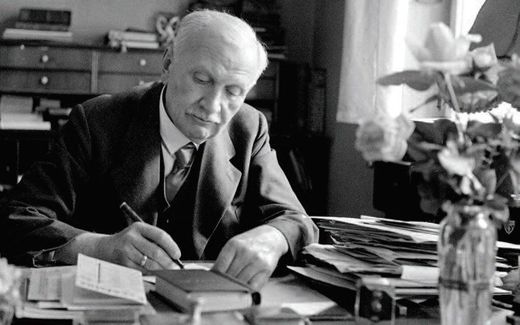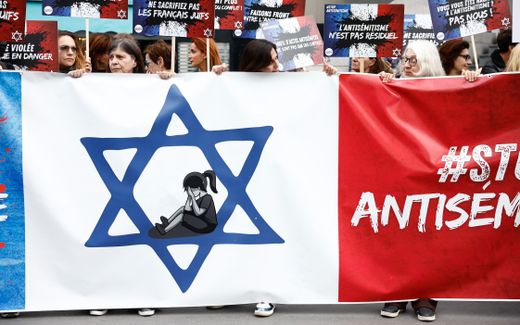This is what Jews in Austria have experienced since October 7
28-08-2024
Central Europe
René Zeeman, RD
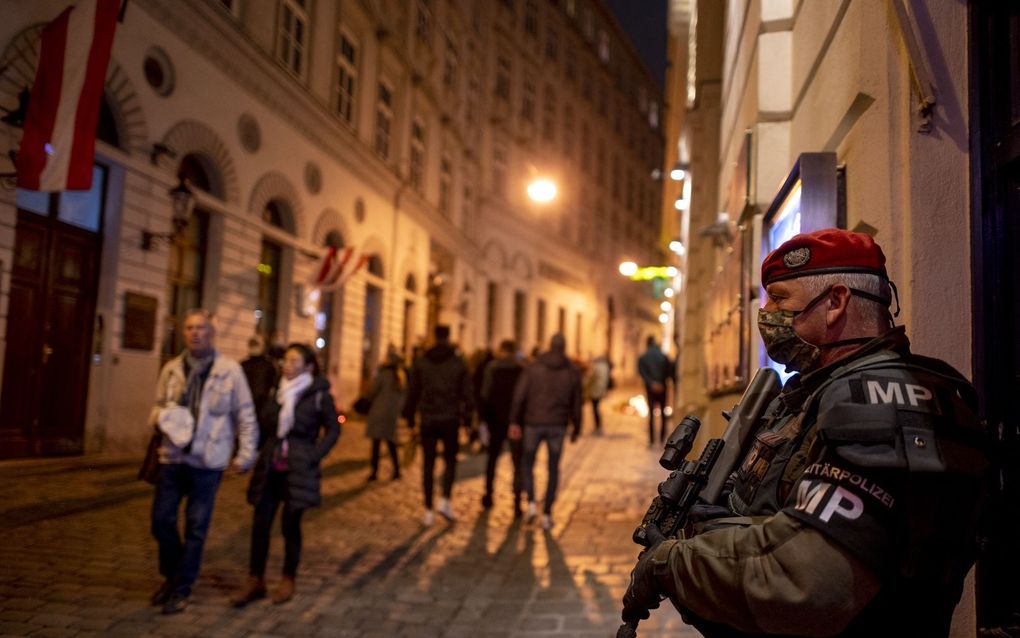
An Austrian military policeman protects the synagogue in the capital city Vienna. Photo AFP, Joe Klamar
Central Europe
The day that changed everything: 7 October 2023, Israel experienced its biggest massacre since World War II. For Jews elsewhere in the world, like in Austria, for example, it was also a tipping point. From one day to the next, they, too, faced violence.
Since the Hamas terror attack, Adam has had discussions with his mother, Meret Baumann writes. She is a correspondent in Austria for the Swiss newspaper Neue Zürcher Zeitung: "She thinks it is dangerous for the 16-year-old to wear a skullcap on the streets during the day. When he is out and about in the Jewish quarter in the capital, Vienna, Jewish community members speak to him and advise him to hide the head covering under a cap for his own safety. Or they speak to his parents about it."
Adam initially listened, but by now, he is walking around outside with a kippah again. Although he does watch where he wears it. In the borough where most migrants live, he definitely takes care.
Adam tells Baumann that he is used to hatred of Jews. When he was little, he already had to deal with another boy who was not allowed to play with him because he was a Jew. With the war in Gaza, hostilities have increased in public. They usually call him names, although he has never been physically attacked.
Islam
Oskar Deutsch, president of the Jewish community in Vienna, spoke earlier this year of "an unprecedented explosion" of anti-Semitic incidents. In September 2023, there were 24 incidents; in October, the number hit 200, and in November and December, it went towards 300. The perpetrators? They include, but certainly not exclusively, people who adhere to Islam.
Deutsch stated that Jews in the Austrian capital have lost their carefree lives since 7 October. They live in fear, and on the streets, they can no longer be recognisable as Jews. The president of the Jewish community expressed appreciation for the Austrian government, "which is doing a lot". However, he wished that anti-Israel protesters would be brought to justice more quickly.
"Anti-Semitism does not start with the gas chamber", Deutsch stressed. "First, there are thoughts, followed by words, and only then come actions." He continued that politics must be active not only. "Civic courage is also needed."
Victims
More than six months ago, the Austrian government launched a package of measures for schools to combat anti-Semitism in a targeted way. "In schools in Vienna," Baumann writes, "Muslims form the largest religious group at 35 per cent".
Even before the Hamas terrorists' attack, anti-Semitism was prevalent among young people. Baumann: "They are often presented with a one-sided view of the Middle East conflict by their families, from the media consumed at home or through social networks. There, the Palestinians are exclusively the victims, and the Israelis are the perpetrators."
The question is whether education in schools will work. Baumann: "For fear of taking a stand, teachers remain silent about the war in Gaza even though it occupies children's minds."
Thomas Krebs of an education union thinks silence in the classroom is not an option. Speaking to Profil magazine, he said. "Making conflicts open to discussion is part of our profession."
Austria and the Second World War
Nazi Germany annexed Austria in 1938. The Anschluss, as the conquest was called, enjoyed fairly general support from the Austrian population.
After the war, the myth persisted in the country that Austria was Germany's first victim, as if there were not hundreds of thousands of Austrians cheering when Adolf Hitler drove into Vienna.
In World War II, 65,000 Austrian Jews were killed. More than 126,000 Jews were forced to emigrate. In the concentration camps, there were relatively many Austrian guards.
In 1946, the Social Democrat Karl Renner, who was Federal President at the time, said, "We will certainly not allow a new Jewish community from Eastern Europe to come here and settle while our own people are looking for work."
This article was translated by CNE.news and was previously published in the Dutch Reformatorisch Dagblad on August 23, 2024
Related Articles
No Tags found

